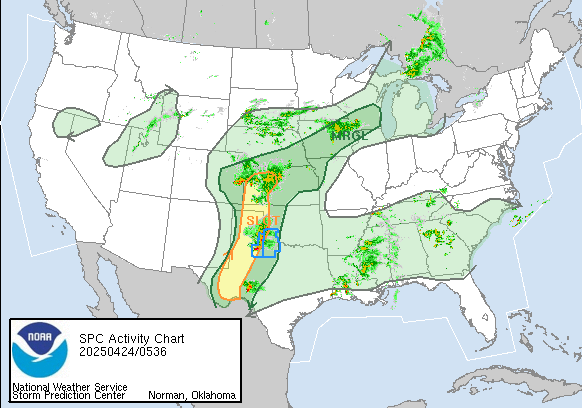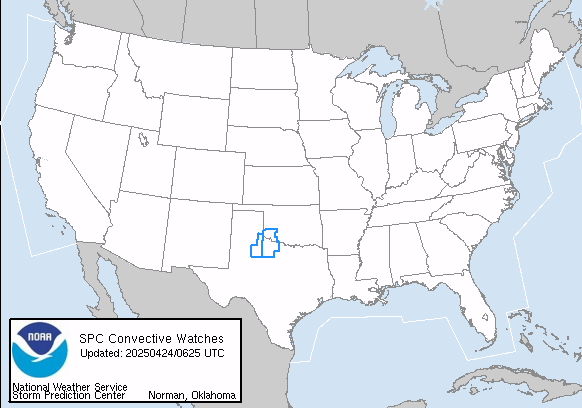Latest News
For/Against a Weather Commission
 A national discussion is happening in the weather community.... not a public discussion necessarily, but a conversation that might have an impact on how you receive weather information in the future.
A national discussion is happening in the weather community.... not a public discussion necessarily, but a conversation that might have an impact on how you receive weather information in the future.  The conversation is based on whether a Weather Commission needs to be formed, or if the weather needs of the nation can be addressed by the three pronged face of the nation's weather. Those three are academia, the private sector, and the public sector, all working together (loosley) through organizations like the National Weather Association, the American Meteorological Society, and advocacy groups like the Weather Coalition, and others. How will you be best served?
The conversation is based on whether a Weather Commission needs to be formed, or if the weather needs of the nation can be addressed by the three pronged face of the nation's weather. Those three are academia, the private sector, and the public sector, all working together (loosley) through organizations like the National Weather Association, the American Meteorological Society, and advocacy groups like the Weather Coalition, and others. How will you be best served?
AMS WeatherFest 2013
 The reason I became a meteorologist was because I was scared of Tornadoes growing up in Oklahoma City. There was a local television meteorologist in Oklahoma City at the CBS affiliate, David Grant, who to me was the only calming voice when the storms started howling. Television meteorologists are one form of weather outreach in the nation's weather community. Without constant public outreach, the nation's pre-teens who become the nation's teenagers, who become the nation's young adults who become parents, career-holders and taxpaying citizens, what the preceding generations learned about weather and environmental awareness and safety is lost. That is why public events like WeatherFest, this time held at the location of the American Meteorological Society's Annual Meeting, are so important to communities nationwide. WeatherFest is for families, educators, and weather afficianados, who this year, though a free event, got MUCH more than they paid for from a well known national broadcast meteorologist who emceed the event.
The reason I became a meteorologist was because I was scared of Tornadoes growing up in Oklahoma City. There was a local television meteorologist in Oklahoma City at the CBS affiliate, David Grant, who to me was the only calming voice when the storms started howling. Television meteorologists are one form of weather outreach in the nation's weather community. Without constant public outreach, the nation's pre-teens who become the nation's teenagers, who become the nation's young adults who become parents, career-holders and taxpaying citizens, what the preceding generations learned about weather and environmental awareness and safety is lost. That is why public events like WeatherFest, this time held at the location of the American Meteorological Society's Annual Meeting, are so important to communities nationwide. WeatherFest is for families, educators, and weather afficianados, who this year, though a free event, got MUCH more than they paid for from a well known national broadcast meteorologist who emceed the event.
Dynamic Jet Spells Spring Trouble
 When the Jet Stream has its highs and lows, much like an elevator operator (see old Vaudeville joke books), there is a lot of changing weather. In the winter, it brings several opportunities for the southern part of the United States to see the forecaster's nightmare scenario. The dreaded "Rain-Snow Line" forecast, which is a never-win situation for a forecaster. Those are the times when a forecaster in, say, Birmingham, has to try to tell the people, with some measure of authority and accuracy, who will see rain, who snow, ice, sleet, etc. But while that is usually a relatively innocuous position to be in, since missing that forecast means some child has to go to school when he hoped to wake up to snow, while others are driving on snow and ice, never a good combination on southern roads! But a dynamic weather pattern in the Spring means dangerous, sometimes deadly weather combinations. Below is a brief journey into meteorology. Only the brave should read on. Okay, kidding, just a little Meteorology and Safety Class 101.
When the Jet Stream has its highs and lows, much like an elevator operator (see old Vaudeville joke books), there is a lot of changing weather. In the winter, it brings several opportunities for the southern part of the United States to see the forecaster's nightmare scenario. The dreaded "Rain-Snow Line" forecast, which is a never-win situation for a forecaster. Those are the times when a forecaster in, say, Birmingham, has to try to tell the people, with some measure of authority and accuracy, who will see rain, who snow, ice, sleet, etc. But while that is usually a relatively innocuous position to be in, since missing that forecast means some child has to go to school when he hoped to wake up to snow, while others are driving on snow and ice, never a good combination on southern roads! But a dynamic weather pattern in the Spring means dangerous, sometimes deadly weather combinations. Below is a brief journey into meteorology. Only the brave should read on. Okay, kidding, just a little Meteorology and Safety Class 101.
New Technology and Warnings Confusion
 In 2006, the United States Congress passed and President George Bush signed into law the WARN Act. This act was meant to put in action a method for sending government issued alerts to citizens and visitors of the United States when there were local or national emergencies. After the WARN Act was codified, various agencies within the federal government, including FEMA, the FCC, and the National Weather Service (NWS), began working on a communications protocol for all agencies, local, state and federal, and their vendors to be able to use common technologies to communicate mass messages to the public (CAPS). IPAWS was born , followed by a cell-tower broadcasting system called CMAS, integrating weather alerts, CMAS/WEA. When launched it was widely touted by local and national media as "an alerting system that will send text messages to all cell phones in the event of NWS warnings", that was only the start of the public's misconceptions of this alerting system. What you don't know, in THIS case, CAN hurt you.
In 2006, the United States Congress passed and President George Bush signed into law the WARN Act. This act was meant to put in action a method for sending government issued alerts to citizens and visitors of the United States when there were local or national emergencies. After the WARN Act was codified, various agencies within the federal government, including FEMA, the FCC, and the National Weather Service (NWS), began working on a communications protocol for all agencies, local, state and federal, and their vendors to be able to use common technologies to communicate mass messages to the public (CAPS). IPAWS was born , followed by a cell-tower broadcasting system called CMAS, integrating weather alerts, CMAS/WEA. When launched it was widely touted by local and national media as "an alerting system that will send text messages to all cell phones in the event of NWS warnings", that was only the start of the public's misconceptions of this alerting system. What you don't know, in THIS case, CAN hurt you.
2012 Leads into a Busy 2013
 Where does time go? Does it ever really move and we just age, or are our surroundings aging along with us, those which are non-organic? You can tell, this author has been reading Stephen Hawking again. And before you ask, a degree in meteorology is applied physics when taken to work in the atmosphere around the globe. So back to the subject at hand, and that is the massive number of marks the weather events of 2012 left on our nation and our world. While I will not list them exhaustively, I will link to numerous articles. By looking at the articles, I hope you will get 2 main and resounding messages from this writing. 1.) The possible IS possible. 2.) Planning and taking action on those plans sometimes are all that keep communities in the Western World from looking like parts of a Third World country when a large scale disaster strikes.
Where does time go? Does it ever really move and we just age, or are our surroundings aging along with us, those which are non-organic? You can tell, this author has been reading Stephen Hawking again. And before you ask, a degree in meteorology is applied physics when taken to work in the atmosphere around the globe. So back to the subject at hand, and that is the massive number of marks the weather events of 2012 left on our nation and our world. While I will not list them exhaustively, I will link to numerous articles. By looking at the articles, I hope you will get 2 main and resounding messages from this writing. 1.) The possible IS possible. 2.) Planning and taking action on those plans sometimes are all that keep communities in the Western World from looking like parts of a Third World country when a large scale disaster strikes.




